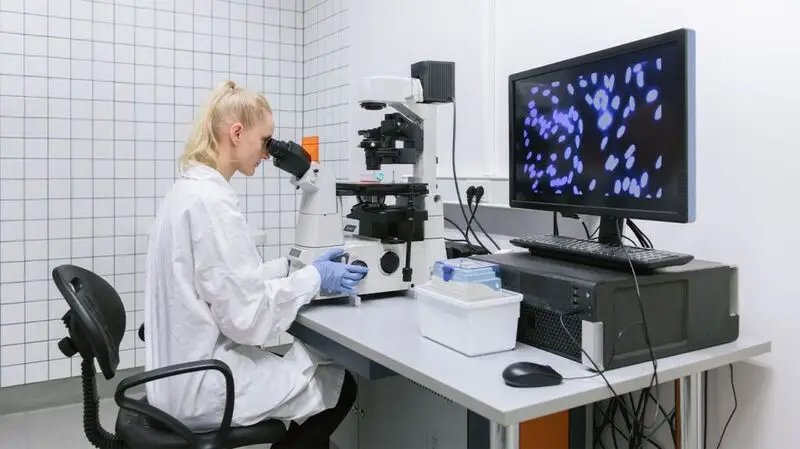
- Researchers report that large fat cells may help with decreases in body weight, body-mass index (BMI), and total body fat.
- In the study, researchers said they also found that certain types of small fat cells can conversely cause increases in body weight, BMI, and total body fat.
- The scientists said measuring a person’s fat cells could help with weight management.
A new study presented at the European Congress on Obesity in Venice, Italy, has concluded that there is a significant correlation between the size of fat cells and future weight issues.
The researchers said they discovered that individuals with larger fat cells tend to lose weight over time while people with smaller fat cells are more likely to gain weight.
They said these findings, which have not been published yet in a peer-reviewed journal, could potentially revolutionize the understanding of weight management.
The study involved a comprehensive measurement of cell volume and the number of fat cells in abdominal fat in samples from 260 participants.
These individuals, with an average age of 44 and an average body mass index (BMI) of 32, were tracked over 15 years.
At the end of the study, the scientists measured body weight, BMI, and total body fat.
Individuals who were taking anti-obesity drugs or undergoing bariatric surgery were excluded from the study to ensure the accuracy of the results.
The researchers said many large fat cells were associated with decreased body weight, BMI, and total body fat. Having fewer but small fat cells correlated with increases in all three measurements, whether the person had obesity or not.
The association between fat cell volume and changes in body weight, BMI, and total body fat remained significant when the researchers adjusted for age, physical activity, length of follow-up, and gender.
Peter Arner, one of the study’s authors and a professor at the Karolinska Institutet in Sweden, explained that small fat cells might increase the risk of gaining weight but may also present some advantages.
“It is well known that people with small fat cells have a better metabolic profile than people who are the same weight but have large fat cells,” Arner said in a press release.
“This means that if someone with small fat cells does gain weight, it may not raise their risk of conditions such as type 2 diabetes and high blood pressure as much as if they had large fat cells,” he added.
Medical experts consider smaller fat cells Healthier. Fat cells can shrink after exercise, but it isn’t always clear whether the size reduction is from exercise or weight loss, which often accompanies an exercise program.
The scientists monitored the men’s diet during the study to ensure they didn’t lose weight. Then, they studied the fat cells and concluded that exercise, not weight loss, made the cells healthier. The cells also became smaller and had less inflammation.
The fat tissue could then take in excess calories from eating. The bodily improvements from exercise and simple movement aren’t just muscle improvements. The researchers said they also improve the Health of cells by shrinking large fat cells.
The scientists in the new study concluded that fat cell volume strongly influenced long-term changes in body weight.
They said this finding opens up new possibilities for early intervention in weight management. Measuring fat cell volume early in life, they said, could help individuals avoid weight issues later in life, offering hope in the battle against obesity.
“This was an interesting study, but I didn’t see anything in it that would change how I approach patients, said Dr. Mir Ali, a bariatric surgeon and the medical director of MemorialCare Surgical Weight Loss Center at Orange Coast Medical Center in California. “Everyone still needs to find the diet that works best for them and to lose weight, you still need to cut back on the amount of food you eat.”
“Losing weight or holding on to weight does have a genetic component, but most people can push through that and when cutting back on calories, lose weight,” Ali, who wasn’t involved in the research, told Medical News Today. “When you lose weight, your fat cells do shrink, but when you regain weight, they get larger.”
“We all know the person that is thin no matter how much they eat. This is a matter of metabolism, not the size or type of fat cells,” noted Ali.
Researchers say that understanding the size of fat cells in an individual could help with weight management.
In the press release, Arner said, “It could be of great clinical value to have information about fat cell size before starting a weight management program. If it is the case that those with large fat cells find it easier to lose weight, those with smaller cells could be given extra support.”
“Unfortunately, there isn’t an easy way of measuring fat cell size at present, but it is something we are working on, and we’re close to coming up with a solution,” he added.





